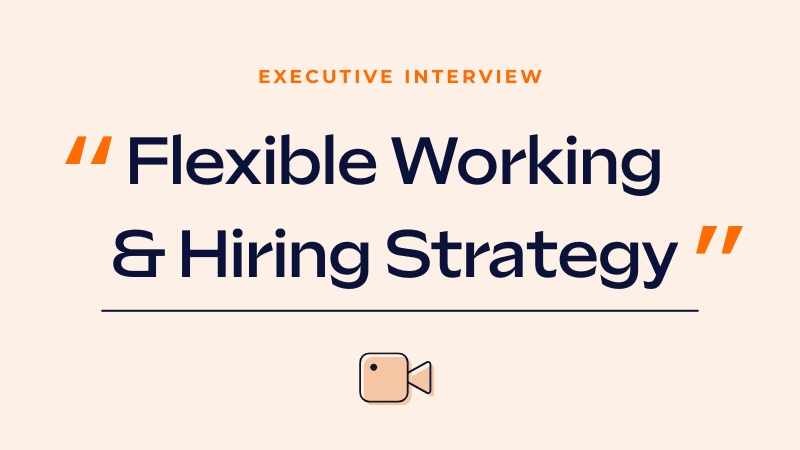Interview: How Flexibility is Redefining Supply Chain Workforce Strategy
June 2025
How Flexibility is Redefining Supply Chain Workforce Strategy

Insights from Matthew Wood, Managing Director for Europe, DSJ Global
The way we work is changing and the supply chain industry is no exception.
In this exclusive interview, Matthew Wood explores how flexible working is reshaping workforce strategies across Europe’s supply chain sector, from hybrid working, to leadership, transformation and trust.
Flexibility is more than remote work
Matthew opened the conversation by breaking down what flexibility actually means.
To some people, it’s purely the ability to work remotely or work from home. For others, it’s around when they work, how long they work, when they do or don’t work… It’s not always the same thing.
In the supply chain industry, the level of flexibility varies dramatically by function. Roles such as procurement, logistics, and business development often allow for more autonomy in where and when work gets done. In contrast, engineering, operations, and HSE positions are closely tied to physical production sites and require regular on-site presence.
Matthew made it clear that even roles with less location flexibility can still offer value in other ways, such as adaptable hours. Leadership and transformational positions also tend to require in-person interaction due to their focus on influence, change management, and team dynamics.
Flexibility reflects company culture
A central theme in the discussion was the way flexibility signals something deeper: company culture and trust.
Flexibility isn’t just about where you work... it’s how you’re trusted to deliver.
DSJ Global’s Europe Supply Chain Talent Report found that while 83% of respondents said flexibility was important or very important when considering a new job, 67% would still accept a full-time office role for the right opportunity. This highlights a critical insight, that people want the option of flexibility, even if they don’t take it all the time.
Matthew added:
When people ask about your flexibility policy, they’re really asking what your company culture is like and what your approach is to trust, openness and transparency.
Candidates increasingly judge companies not just on their flexibility policies, but on how those policies reflect the employer’s openness, understanding, and ability to support different needs.
Success can depend on leadership and dialogue
Even the best flexibility policies can fall flat without the right leadership. Matthew pointed out that management capability plays a crucial role in making flexible working sustainable.
Flexibility only works if you have the ability within your organisation to lead people in a remote or hybrid setting. Otherwise, you’re going to see problems pretty quickly.
He also encouraged employers who are struggling to balance flexibility with operational demands to be more open with their teams.
Talk to your teams. Understand what needs they have and be open around the needs of the business. It’s a two-way conversation. If people understand the why, they’ll buy in.
Offering the option of flexibility, even if it’s not always used, can make a significant difference in employee satisfaction and retention. It also supports greater diversity and inclusion, helping to attract and retain individuals who may have caregiving responsibilities or different working needs. Transparency and trust are key to building an environment where flexibility benefits everyone.
AI and automation are changing roles, but not how you might expect
Toward the end of the interview, the conversation shifted to technology. While AI and automation are helping streamline manual tasks, their impact on flexibility is more complex.
More technology doesn’t mean fewer jobs - it means different jobs, with a greater focus on people, strategy, and influence.
Increased automation might lead to less flexibility in some roles. As repetitive tasks are handled by machines, humans are freed up for more strategic, people-focused work. That often means being physically present with stakeholders, customers, or teams.
If I’ve now got more time to spend with stakeholders internally or customers externally, I can’t be sat on a beach or in my home office. I need to be there in person.
Flexibility in the supply chain industry is not one-dimensional. It’s about more than remote work. It’s about time, trust, and leadership. Companies that succeed in this industry will be those that treat flexibility as a multifaceted strategy, invest in management capability, engage employees in honest conversations, and adapt to the changing nature of work brought on by AI and automation. Done well, flexibility becomes more than an expectation. It becomes a powerful tool for success.
Let’s talk talent
Need the right talent for your next hire, or guidance on your people strategy? Leverage our experience to help you and your business today.
Advancing your career
Want to be one step ahead in your career? Our industry experts have the relationships and global reach to realise your full potential.
